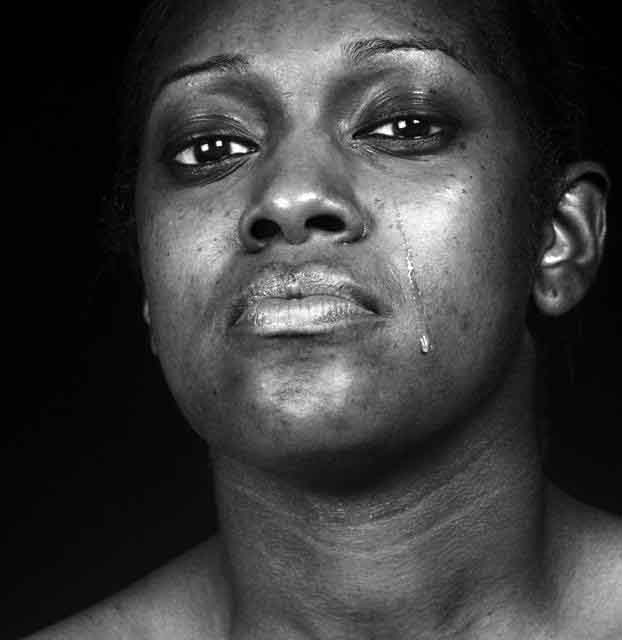When Arresting Domestic Abusers Does More Harm than Good
Despite decades of law enforcement intervention, domestic violence is still major public concern. To prevent police inaction in response to domestic abuse and ultimately to attempt to lower domestic violence rates, nearly half of the U.S. states have implemented mandatory arrest provisions. While the preferred arrest law instructs the responding officer to consider arrest as the preferred course of action, in the case of mandatory arrest laws, the responding officer is obligated to make a more aggressive intervention and make an arrest (he is, however, required to find probable cause that an offense has been committed).
For the last three decades, the warrantless arrest powers of law enforcement have grown exponentially, and they keep growing: just last month, the legislature in Madison County, Alabama, passed a bill that would further increase authorities’ freedom to make arrests. But ongoing research examining the outcome – for both the victim and the aggressor – of mandatory arrest laws raises various questions about the efficiency of this approach in cases of domestic violence.
Mandatory Arrests Increase Domestic Violence Rates
A paper from the National Bureau of Economic Research published in June, 2007, attempted to analyze to what extent does the certainty of arrest lower domestic violence rates, and the results were surprising: “The results presented in this study suggest that this (implementing mandatory arrest laws to decrease intimate partner violence rates) may, in fact,be counterproductive. Using data from the FBI Supplementary Homicide Reports from 1976-2003, I find that the level of intimate partner homicide increased in states with these mandatory arrest laws. This may be because abuse victims may be less likely to contact the police in the face of a mandatory arrest law.”
What the author of the paper found out is that, instead of seeing a decrease in domestic violence due to the aggressive intervention of law enforcement, an opposite effect is visible: homicide rates have actually increased due to decreased reporting of domestic crimes. Regardless of the good intentions of state policy makers, mandatory arrest laws are shown to harm the very people they try to help.
 The solution? A change of tactics: “Given the dangerous and pervasive nature of domestic violence, there is little doubt that state intervention, in some form, is required. Determining what shape that intervention takes is of vital importance. The results from this study suggest that the threat of arrest is insufficient to deter abusers from killing their victims. Finding arrests deter victim reporting rather than perpetrator abuse provides valuable insight into the intricacies facing governmental attempts to decrease intimate partner violence.”
The solution? A change of tactics: “Given the dangerous and pervasive nature of domestic violence, there is little doubt that state intervention, in some form, is required. Determining what shape that intervention takes is of vital importance. The results from this study suggest that the threat of arrest is insufficient to deter abusers from killing their victims. Finding arrests deter victim reporting rather than perpetrator abuse provides valuable insight into the intricacies facing governmental attempts to decrease intimate partner violence.”
Mandatory Arrests Cause Early Death in Victims
Arresting a domestic abuser may not only lead to more violence (as pointed by the aforementioned study), but it can also have significant negative effects on the victims’ long-term health.
A recent follow-up of the study conducted more than two decades ago called The Milwaukee Domestic Violence Experiment found that victims of domestic violence whose partners have been arrested on misdemeanor charges were more likely to have died, compared to victims whose aggressors haven’t been arrested by the police. The cause of death was not violence inflicted by the aggressor, but rather health-related reasons such as heart attacks, cancer, and other internal diseases. The main takeaway: having a partner arrested – regardless of his abusive behavior – takes an emotional toll that will impact victims’ health years after the incident.
 The numbers were particularly discouraging for African-American victims, which made up the majority of victims in the initial study. It was revealed that black women who had partners arrested on domestic violence charges were two times more likely to have died of disease by 2013, compared to women whose partners were only warned, but not arrested, in cases of domestic violence. Furthermore, another interesting point made by the study was that black victims who were working at the times their partners were arrested were four times more likely to have died than those whose partners got off with just a warning.
The numbers were particularly discouraging for African-American victims, which made up the majority of victims in the initial study. It was revealed that black women who had partners arrested on domestic violence charges were two times more likely to have died of disease by 2013, compared to women whose partners were only warned, but not arrested, in cases of domestic violence. Furthermore, another interesting point made by the study was that black victims who were working at the times their partners were arrested were four times more likely to have died than those whose partners got off with just a warning.
Lawrence Sherman, the Director of the Institute of Criminology of the University of Cambridge, said “We are now sure that the difference in death was not due to homicide, which was our original research question. […] The racial difference suggests that the best explanation must be bio-social. There must be something about witnessing a partner’s arrest that triggers a physiological response leading to higher rates of death from heart disease and other internal maladies, but far more so for victims who are African-American than for whites.”
It still isn’t very clear what mechanisms triggered such a response in victims who died earlier. The study goes on to explain that defendants who were, in fact,arrested were most often incarcerated for short periods, so it wasn’t the suffering or toil of the arrested partner that led to a decrease of the victims’ overall health. (Most were misdemeanor arrests as well, meaning that there were no physical injuries.)
 Previous studies have revealed the increased likelihood of post-traumatic stress symptoms in victims who witnessed the arrest of their partners, symptoms linked in the long run with premature death caused by heart complications and other health disorders. However, the reasons why victims in concentrated black poverty areas suffer more trauma than those in white working-class communities are yet to be understood: “Because all the victims had an equal chance of having their partners arrested by random assignment, there is no other likely explanation for this difference except that it was caused by seeing their partners arrested.”
Previous studies have revealed the increased likelihood of post-traumatic stress symptoms in victims who witnessed the arrest of their partners, symptoms linked in the long run with premature death caused by heart complications and other health disorders. However, the reasons why victims in concentrated black poverty areas suffer more trauma than those in white working-class communities are yet to be understood: “Because all the victims had an equal chance of having their partners arrested by random assignment, there is no other likely explanation for this difference except that it was caused by seeing their partners arrested.”
The findings are, of course, subject of debate. But if one conclusion can be drawn from all this data is that domestic violence should be a subject of constant research, and the focus should be on the results of current policies, not on the good intentions of policymakers. Hopefully, the ongoing analysis will lead to the development of effective methods of identification and prevention, rather than simply assuming that locking away abusers will solve the problem in the long run.
About the Author
Andrew M. Weisberg is a criminal defense attorney in Chicago, Illinois. A former prosecutor in Cook County, Mr. Weisberg,is a member of the Capital Litigation Trial Bar, an elite group of criminal attorneys who are certified by the Illinois Supreme Court to try death penalty cases. He is also a member of the Federal Trial Bar. Mr. Weisberg is a sole practitioner at the Law Offices of Andrew M. Weisberg.







 Blog Home
Blog Home 










